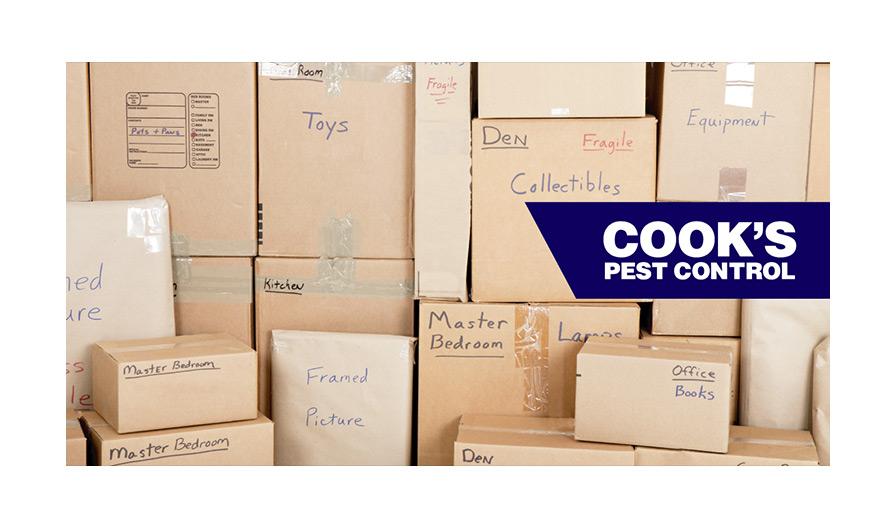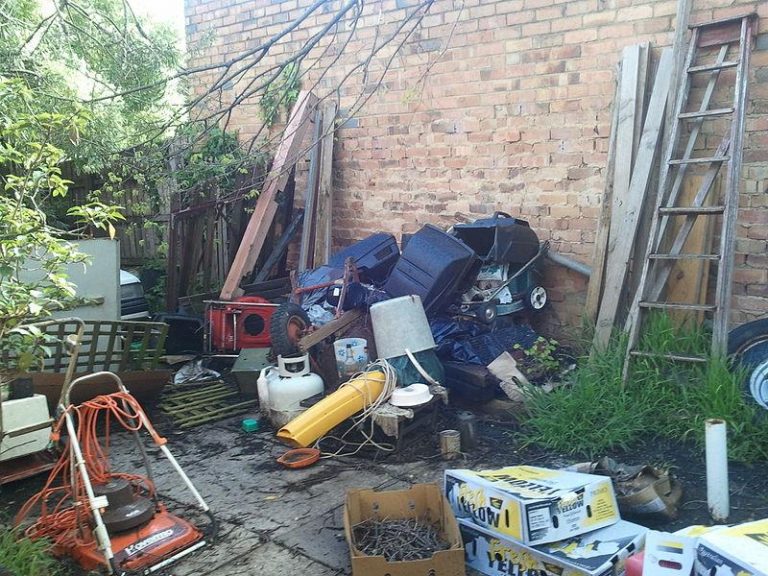How Your Pack Rat Habits May Be Affecting Your Pest Control

You don’t have to be a hoarder to benefit from a little spring cleaning. For some people, throwing things away can be liberating or even therapeutic. A few years ago, my mom asked if I wanted any of the toys from my youth. The child in me wanted them for the sake of nostalgia, but my rational adult self did not. The toys would probably just sit in a cardboard box in the attic, collecting dust and providing a home for pests.
And that’s what I’d like to discuss today: pests and clutter. Do you keep boxes in the attic for all your seasonal décor? Do you have one room full of boxes from a recent move that you’ve had yet to unpack? How are your closets looking? Do you store things under your bed? It’s okay if you do. I think we’re all guilty of keeping things in storage, but we should assess what should be kept and what should be tossed out on a yearly basis. It doesn’t have to be on National Pack Rat Day, but it’s a convenient time to talk about it.
The Problem with Clutter
Clutter provides all sorts of nooks and crannies for pests to hide in. In our industry, anything that can hide or shelter a pest is called “harborage.” Excessive clutter has been linked to increased pest issues. The Boston Housing Authority showed that tenants with hoarding tendencies required twice as many pest control visits than tenants who didn’t hoard.
Excessive harborage makes it difficult to determine if pests are present in low numbers when they could be easily controlled. In a kitchen stacked high with pizza boxes, dirty dishes, trash bags, and used rags, would you notice ten cockroaches? You may not notice until there were hundreds or thousands.

A haven for all manner of pests.
Photographer: Un Touriste, CC-BY 3.0, link here
While clutter doesn’t cause pests to occur, it renders many control efforts ineffective, since whatever product you’re applying can’t be placed in areas where pests are active. Bed bugs are notoriously hard to control under normal circumstances; add a lot of clutter, and control may be nigh impossible. Clutter can also hide discarded food, crumbs, or spillage which pests can feast on, making them less likely to accept baits. Clutter physically prevents you from getting to source of a pest. A proper indoor flea treatment requires access to the carpets. Flea larvae hate the light and are only found in the “shady” hidden areas beneath furniture (or clutter). If you can’t get to the carpet, you can’t get to the problem.

A little crowded.
Photographer: Tabaluga, GNA General Public License, link here
Cardboard boxes are a favorite hideaway for brown recluse spiders. Not many spiders are human health hazards, but the brown recluse is one of the few. Only a small percentage of people experience complications following a brown recluse bite – a slow healing ulcer, tissue death, and a craterous scar – but when it comes to your health or the health of a loved one, one spider may be one too many. When pests are deprived of harborage, the population becomes stressed and eventually declines. If you lost your house and had to live on the streets, you could probably survive, but you may not be as healthy, and you probably wouldn’t live as long. The same applies for any pest.
When moving or going through cardboard boxes in the attic or garage, wear working gloves to protect your hands should you accidentally grab a brown recluse. I recommend semi-thick working gloves. It’s possible for a spider to puncture thin, skintight gloves made of nitrile or latex.
We could write a book about the pests that thrive in clutter, but the take-home message is that any pest problem is amplified with clutter. Consider also that mice and rats love to use trash and paper products for nesting material, ants are scavengers on food scraps and soda cans, and clutter (as well as the inaccessibility it brings) can conceal termite activity.
I’ve already started cleaning and organizing, and I hope you will, too. Let’s prevent pest problems from getting out of hand.

Don’t forget the outside of your house.
Photographer: Stroz, Public Domain, link here
